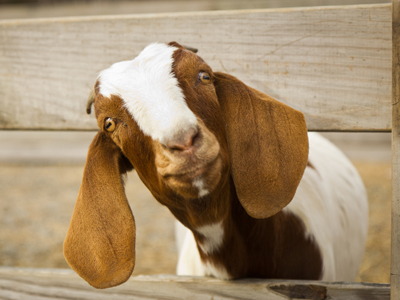
Animal Farm - Extract 1
This Literature quiz is called 'Animal Farm - Extract 1' and it has been written by teachers to help you if you are studying the subject at high school. Playing educational quizzes is a user-friendly way to learn if you are in the 9th or 10th grade - aged 14 to 16.
It costs only $12.50 per month to play this quiz and over 3,500 others that help you with your school work. You can subscribe on the page at Join Us
This high school English Literature quiz is the first of two extract questions for George Orwell's Animal Farm. It takes place in Chapter III and describes the education program introduced on the farm. Snowball has created several committees, such as the Wild Comrades’ Re-education Committee and the Whiter Wool Movement, for the betterment of the animals. In this passage, the divergence in views between Snowball and Napoleon becomes apparent. Other issues which will later prove contentious on the farm also begin to arise at this early stage.
The reading and writing classes, however, were a great success. By the autumn almost every animal on the farm was literate in some degree.
As for the pigs, they could already read and write perfectly. The dogs learned to read fairly well, but were not interested in reading anything except the Seven Commandments. Muriel, the goat, could read somewhat better than the dogs, and sometimes used to read to the others in the evenings from scraps of newspaper which she found on the rubbish heap. Benjamin could read as well as any pig, but never exercised his faculty. So far as he knew, he said, there was nothing worth reading. Clover learned the whole alphabet, but could not put words together. Boxer could not get beyond the letter D. He would trace out A, B, C, D in the dust with his great hoof, and then would stand staring at the letters with his ears back, sometimes shaking his forelock, trying with all his might to remember what came next and never succeeding. On several occasions, indeed, he did learn E, F, G, H, but by the time he knew them it was always discovered that he had forgotten A, B, C and D. Finally he decided to be content with the first four letters, and used to write them out once or twice every day to refresh his memory. Mollie refused to learn any but the five letters which spelled her own name. She would form these very neatly out of pieces of twig, and would then decorate them with a flower or two and walk round them admiring them.
None of the other animals on the farm could get further than the letter A. It was also found that the stupider animals such as the sheep, hens and ducks, were unable to learn the Seven Commandments by heart. After much thought Snowball declared that the Seven Commandments could in effect be reduced to a single maxim, namely: “Four legs good, two legs bad”. This, he said contained the essential principle of Animalism. Whoever had thoroughly grasped it would be safe from human influences. The birds at first objected, since it seemed to them that they also had two legs, but Snowball proved to them that this was not so.
“A bird’s wing, comrades,” he said, “is an organ of propulsion and not of manipulation. It should therefore be regarded as a leg. The distinguishing mark of Man is the hand, the instrument with which he does all his mischief.”
The birds did not understand Snowball’s long words, but they accepted his explanation, and all the humbler animals set to work to learn the new maxim by heart. FOUR LEGS GOOD, TWO LEGS BAD, was inscribed on the end wall of the barn, above the Seven Commandments and in bigger letters. When they had once got it by heart the sheep developed a great liking for this maxim, and often as they lay in the field they would all start bleating “Four legs good, two legs bad! Four legs good, two legs bad!” and keep it up for hours on end, never growing tired of it.
Napoleon took no interest in Snowball’s committees. He said that the education of the young was more important than anything that could be done for those who were already grown up. It happened that Jessie and Bluebell had both whelped soon after the hay harvest, giving birth between them to nine sturdy puppies. As soon as they were weaned Napoleon took them away from their mothers, saying that he would make himself responsible for their education. He took them up into a loft which could only be reached by a ladder from the harness-room, and there kept them in such seclusion that the rest of the farm soon forgot their existence.
The mystery of where the milk went to was soon cleared up. It was mixed every day into the pigs’ mash.
George Orwell, Animal Farm (Penguin Books, 1989)
Ready for more?
not all...
quizzers. Try to win a coveted spot on our Hall of Fame Page.







